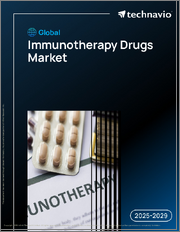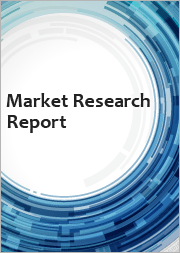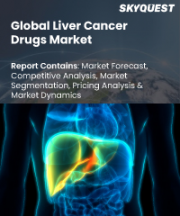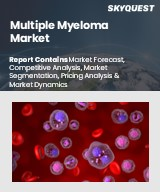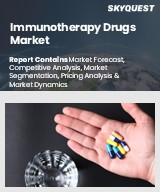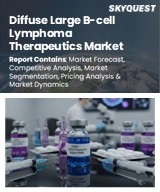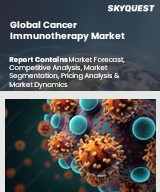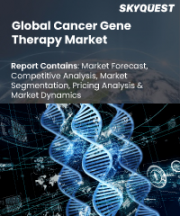
|
시장보고서
상품코드
1675444
면역치료제 시장 : 약제 유형별, 치료 영역별, 최종사용자별, 지역별(2025-2033년)Immunotherapy Drugs Market Report by Drug Type, Therapy Area, End User, and Region 2025-2033 |
||||||
면역치료제 시장 세계 시장 규모는 2024년 2,295억 달러에 달했습니다. 향후 IMARC Group은 2033년까지 시장 규모가 4,494억 달러에 달할 것으로 예상하며, 2025-2033년 연평균 성장률(CAGR)은 7.36%를 나타낼 것으로 전망하고 있습니다. 고령화에 따른 다양한 암종의 유병률 증가, 맞춤형 치료제에 대한 수요 증가, 조기 발견 및 조기 치료에 대한 개인의 인식 증가 등이 시장을 이끄는 주요 요인으로 작용하고 있습니다.
면역치료제는 질병과 싸우거나 질병을 통제하기 위해 면역체계를 이용하거나 변경하도록 설계된 치료법입니다. 특정 세포와 단백질에 작용하여 건강한 조직에 대한 피해를 최소화합니다. 면역치료제는 다른 치료법에 비해 내성이 생길 가능성이 적고, 더 나은 결과를 가져다주며, 부작용이 적습니다. 흑색종, 폐암, 유방암 등 다양한 유형의 암 치료에 이용되고 있습니다. 또한 특정 알레르기 반응의 관리와 류마티스 관절염, 루푸스, 다발성 경화증과 같은 질병의 치료에도 사용되고 있습니다. 이 외에도 만성 염증성 질환을 조절하는 데에도 효과적이기 때문에 전 세계적으로 면역치료제에 대한 수요가 증가하고 있습니다.
제약 산업의 부상과 전 세계 약국의 확대는 좋은 시장 전망을 가져오고 있습니다. 또한, 생명공학 기업, 제약사, 연구기관의 전략적 제휴 및 인수합병(M&A)이 면역치료제 연구개발 및 상업화 활동을 뒷받침하고 있습니다. 또한, 연구개발(R&D) 활동에서 인공지능(AI)과 빅데이터 분석의 통합은 효율성과 정확성을 높이고 있습니다. 이러한 기술 통합은 표적의 신속한 식별, 임상시험의 최적화, 환자 반응 예측을 가능하게 합니다.
면역치료제 시장 동향/촉진요인:
표적 질환의 유병률 증가
생활습관의 변화와 건강에 해로운 식습관으로 인해 다양한 유형의 암 발생이 증가함에 따라 면역치료와 같은 혁신적이고 효과적인 치료법에 대한 수요가 증가하고 있습니다. 또한, 조기 발견과 맞춤 치료의 필요성이 환자와 의료진에게 이러한 첨단 치료법을 채택하도록 유도하고 있습니다. 이와는 별도로, 급속한 도시화와 유해한 자동차 배기가스로 인한 오염 증가는 다양한 만성질환의 원인이 되고 있으며, 면역치료에 대한 새로운 기회를 창출하고 있습니다. 또한, 종양, 암 및 기타 건강 상태에 취약한 고령화 인구 증가로 인해 면역치료제와 같은 효과적인 치료법과 기술의 필요성이 증가하고 있습니다.
개인 맞춤형 의료 도입
환자 중심의 접근을 촉진하기 위해 다양한 의료 분야에서 개인맞춤형 의약품의 사용이 증가하고 있는 것은 시장에 긍정적인 영향을 미치고 있습니다. 또한, 차세대 염기서열 분석 및 바이오마커 분석과 같은 첨단 진단 도구의 개발로 특정 면역 치료의 대상이 되는 환자를 정확하게 식별할 수 있게 되었습니다. 이러한 진단의 발전은 조기 개입을 용이하게 하고, 맞춤 치료 계획을 가능하게 하며, 면역 치료의 전반적인 효과를 높이는 데 도움이 되고 있습니다. 이와는 별도로, 개별화된 면역치료는 시행착오의 가능성을 줄여줍니다. 또한, 이러한 표적화된 접근 방식은 비효율적인 치료의 사용을 최소화하고, 불필요한 부작용을 피하고, 조기 회복을 촉진하고, 의료 비용을 절감할 수 있어 시장 성장에 기여하고 있습니다.
정부 및 규제 당국의 지원
각국 정부 및 규제기관은 면역치료제 및 치료법 개발에 지속적으로 집중하고 있으며, 이는 시장 전망을 밝게 하고 있습니다. 또한, 신규 면역치료제 개발 및 기존 면역치료제의 최적화에 필요한 면밀한 연구를 위한 재정적 지원도 이루어지고 있습니다. 이와는 별도로 정부, 연구기관, 비상장 기업의 파트너십이 시장 성장을 뒷받침하고 있습니다. 이러한 협력 관계는 지식의 교류를 촉진하고 국경을 초월한 획기적인 면역 요법 치료의 개발을 가속화하고 있습니다. 또한, 정부의 헬스케어 정책의 도입도 면역요법의 도입과 상환을 촉진하고 있습니다.
목차
제1장 서문
제2장 조사 범위와 조사 방법
- 조사 목적
- 이해관계자
- 데이터 소스
- 1차 정보
- 2차 정보
- 시장 추정
- 보텀업 접근
- 톱다운 접근
- 조사 방법
제3장 주요 요약
제4장 서론
- 개요
- 주요 업계 동향
제5장 세계의 면역치료제 시장
- 시장 개요
- 시장 실적
- COVID-19의 영향
- 시장 예측
제6장 시장 분석 : 약제 유형별
- 단클론항체
- 백신
- 인터페론 α/β
- 인터류킨
제7장 시장 분석 : 치료 영역별
- 암
- 자가면역 질환 및 염증성 질환
- 감염증
- 기타
제8장 시장 분석 : 최종사용자별
- 병원
- 클리닉
- 기타
제9장 시장 분석 : 지역별
- 북미
- 미국
- 캐나다
- 아시아태평양
- 중국
- 일본
- 인도
- 한국
- 호주
- 인도네시아
- 기타
- 유럽
- 독일
- 프랑스
- 영국
- 이탈리아
- 스페인
- 러시아
- 기타
- 라틴아메리카
- 브라질
- 멕시코
- 기타
- 중동 및 아프리카
- 시장 내역 : 국가별
제10장 SWOT 분석
- 개요
- 강점
- 약점
- 기회
- 위협
제11장 밸류체인 분석
제12장 Porter의 Five Forces 분석
- 개요
- 바이어의 교섭력
- 공급 기업의 교섭력
- 경쟁 정도
- 신규 진출업체의 위협
- 대체품의 위협
제13장 가격 분석
제14장 경쟁 구도
- 시장 구조
- 주요 기업
- 주요 기업 개요
- AstraZeneca plc
- Bayer AG
- Boehringer Ingelheim International GmbH
- Bristol-Myers Squibb Company
- F. Hoffmann-La Roche AG
- GSK plc
- Merck & Co. Inc.
- Pfizer Inc.
- Sanofi S.A.
The global immunotherapy drugs market size reached USD 229.5 Billion in 2024. Looking forward, IMARC Group expects the market to reach USD 449.4 Billion by 2033, exhibiting a growth rate (CAGR) of 7.36% during 2025-2033. The growing prevalence of different cancer types due to the aging population, rising demand for personalized medicines, and the increasing awareness among individuals about early detection and treatment are some of the major factors propelling the market.
Immunotherapy drugs are medical treatments designed to utilize or modify the immune system to fight or control diseases. They focus on specific cells and proteins and aid in minimizing harm to healthy tissues. They reduce the likelihood of developing resistance, offer better outcomes, and have fewer side effects as compared to other treatments. They are utilized in treating various types of cancers, including melanoma, lung, and breast cancer. They are also used in managing specific allergic reactions and treating diseases like rheumatoid arthritis, lupus, and multiple sclerosis. Besides this, as they are effective in controlling chronic inflammatory diseases, the demand for immunotherapy drugs is increasing across the globe.
The rise in the pharmaceutical industry and the expansion of pharmacies worldwide is offering a favorable market outlook. Moreover, strategic collaborations and mergers and acquisitions (M&A) between biotech firms, pharmaceutical companies, and research institutions are supporting the research, development, and commercialization activities of immunotherapy products. Furthermore, the integration of artificial intelligence (AI) and big data analytics in research and development (R&D) activities is enhancing efficiency and precision. This technological integration is enabling the rapid identification of targets, optimization of clinical trials, and prediction of patient responses.
Immunotherapy Drugs Market Trends/Drivers:
The increasing prevalence of target diseases
The rising occurrence of different types of cancer due to lifestyle changes and unhealthy dietary patterns is catalyzing the demand for innovative and effective treatments like immunotherapy is growing. Additionally, the early detection and need for personalized therapy options are encouraging patients and healthcare providers to adopt these advanced treatment alternatives. Apart from this, rapid urbanization and rising pollution levels due to harmful vehicular emissions are resulting in various chronic diseases, which is creating new opportunities for immunotherapy treatments. Furthermore, the increasing aging population, which is highly susceptible to tumor, cancer, and other health conditions, is driving the need for effective treatments and technologies, like immunotherapy drugs.
Adoption of personalized medicines
The increasing utilization of personalized medicines in various medical fields to promote a more patient-centered approach is positively influencing the market. Additionally, the development of advanced diagnostic tools, such as next-generation sequencing and biomarker analysis, is enabling the precise identification of patients for specific immunotherapies. These advancements in diagnostics facilitate early intervention and allow for personalized treatment plans, which aid in enhancing the overall effectiveness of immunotherapy. Apart from this, personalized immunotherapies reduce the likelihood of trial-and-error approaches. Furthermore, this targeted approach minimizes the use of ineffective treatments, avoids unnecessary side effects, facilitates quicker recoveries, and reduces healthcare costs, which is contributing to market growth.
Governmental and regulatory support
Governments and regulatory bodies of various countries are continuously focusing on the development of immunotherapy drugs and therapies, which is offering a favorable market outlook. Additionally, they are providing financial support for conducting the in-depth studies required to develop novel immunotherapies and optimize existing ones. Apart from this, partnerships between governments, research institutions, and private companies are supporting market growth. These collaborations facilitate knowledge exchange and accelerate the development of groundbreaking immunotherapy treatments across borders. Furthermore, the introduction of several supportive governmental healthcare policies is encouraging the adoption and reimbursement of immunotherapies.
Immunotherapy Drugs Industry Segmentation:
Breakup by Drug Type:
- Monoclonal Antibodies
- Vaccines
- Interferons Alpha and Beta
- Interleukins
Monoclonal antibodies represent the largest market segment
Breakup by Therapy Area:
- Cancer
- Autoimmune and Inflammatory Diseases
- Infectious Diseases
- Others
Cancer accounts for the majority of the market share
Breakup by End User:
- Hospitals
- Clinics
- Others
Hospitals hold the majority of the market share
Breakup by Region:
- North America
- United States
- Canada
- Asia-Pacific
- China
- Japan
- India
- South Korea
- Australia
- Indonesia
- Others
- Europe
- Germany
- France
- United Kingdom
- Italy
- Spain
- Russia
- Others
- Latin America
- Brazil
- Mexico
- Others
- Middle East and Africa
North America exhibits a clear dominance, accounting for the largest immunotherapy drugs market share
The report has also provided a comprehensive analysis of all the major regional markets, which include North America (the United States and Canada); Europe (Germany, France, the United Kingdom, Italy, Spain, Russia, and others); Asia Pacific (China, Japan, India, South Korea, Australia, Indonesia, and others); Latin America (Brazil, Mexico, and others); and the Middle East and Africa. According to the report, North America accounted for the largest market share as the region has a well-established healthcare infrastructure that allows for the efficient distribution and utilization of immunotherapy drugs. Sophisticated medical facilities and well-trained healthcare professionals facilitate the widespread adoption of these treatments. Additionally, the region witnesses substantial investments from public and private sectors in healthcare and biotechnology, which facilitates research, drug development, and commercialization of immunotherapy products. Apart from this, the regulatory bodies in North America, such as the Food and Drug Administration (FDA), offer a conducive environment for drug approval. Furthermore, strategic collaborations between academia, biotech firms, and pharmaceutical companies ensure a dynamic environment for continuous innovation and growth in the field of immunotherapy.
Competitive Landscape:
Companies are actively engaged in various activities to stay competitive and innovate. They are conducting extensive research and development (R&D) activities, working on discovering new targets and optimizing existing therapies. Additionally, these companies are forming strategic partnerships with academic institutions, leveraging their expertise to fuel innovation. Apart from this, they are investing in cutting-edge manufacturing technologies to produce immunotherapy drugs efficiently and at scale. Furthermore, regulatory teams within these companies are collaborating with governmental bodies to ensure compliance with emerging rules and gain expedited approvals for novel treatment. Moreover, many companies are actively participating in international conferences and symposia, sharing knowledge, and learning from global peers.
The report has provided a comprehensive analysis of the competitive landscape in the market. Detailed profiles of all major companies have also been provided. Some of the key players in the market include:
- AstraZeneca plc
- Bayer AG
- Boehringer Ingelheim International GmbH
- Bristol-Myers Squibb Company
- F. Hoffmann-La Roche AG
- GSK plc
- Merck & Co. Inc.
- Pfizer Inc.
- Sanofi S.A.
Key Questions Answered in This Report
- 1.How big is the global immunotherapy drugs market?
- 2.What is the expected growth rate of the global immunotherapy drugs market during 2025-2033?
- 3.What are the key factors driving the global immunotherapy drugs market?
- 4.What has been the impact of COVID-19 on the global immunotherapy drugs market?
- 5.What is the breakup of the global immunotherapy drugs market based on the drug type?
- 6.What is the breakup of the global immunotherapy drugs market based on the therapy area?
- 7.What is the breakup of the global immunotherapy drugs market based on the end user?
- 8.What are the key regions in the global immunotherapy drugs market?
- 9.Who are the key players/companies in the global immunotherapy drugs market?
Table of Contents
1 Preface
2 Scope and Methodology
- 2.1 Objectives of the Study
- 2.2 Stakeholders
- 2.3 Data Sources
- 2.3.1 Primary Sources
- 2.3.2 Secondary Sources
- 2.4 Market Estimation
- 2.4.1 Bottom-Up Approach
- 2.4.2 Top-Down Approach
- 2.5 Forecasting Methodology
3 Executive Summary
4 Introduction
- 4.1 Overview
- 4.2 Key Industry Trends
5 Global Immunotherapy Drugs Market
- 5.1 Market Overview
- 5.2 Market Performance
- 5.3 Impact of COVID-19
- 5.4 Market Forecast
6 Market Breakup by Drug Type
- 6.1 Monoclonal Antibodies
- 6.1.1 Market Trends
- 6.1.2 Market Forecast
- 6.2 Vaccines
- 6.2.1 Market Trends
- 6.2.2 Market Forecast
- 6.3 Interferons Alpha and Beta
- 6.3.1 Market Trends
- 6.3.2 Market Forecast
- 6.4 Interleukins
- 6.4.1 Market Trends
- 6.4.2 Market Forecast
7 Market Breakup by Therapy Area
- 7.1 Cancer
- 7.1.1 Market Trends
- 7.1.2 Market Forecast
- 7.2 Autoimmune and Inflammatory Diseases
- 7.2.1 Market Trends
- 7.2.2 Market Forecast
- 7.3 Infectious Diseases
- 7.3.1 Market Trends
- 7.3.2 Market Forecast
- 7.4 Others
- 7.4.1 Market Trends
- 7.4.2 Market Forecast
8 Market Breakup by End User
- 8.1 Hospitals
- 8.1.1 Market Trends
- 8.1.2 Market Forecast
- 8.2 Clinics
- 8.2.1 Market Trends
- 8.2.2 Market Forecast
- 8.3 Others
- 8.3.1 Market Trends
- 8.3.2 Market Forecast
9 Market Breakup by Region
- 9.1 North America
- 9.1.1 United States
- 9.1.1.1 Market Trends
- 9.1.1.2 Market Forecast
- 9.1.2 Canada
- 9.1.2.1 Market Trends
- 9.1.2.2 Market Forecast
- 9.1.1 United States
- 9.2 Asia-Pacific
- 9.2.1 China
- 9.2.1.1 Market Trends
- 9.2.1.2 Market Forecast
- 9.2.2 Japan
- 9.2.2.1 Market Trends
- 9.2.2.2 Market Forecast
- 9.2.3 India
- 9.2.3.1 Market Trends
- 9.2.3.2 Market Forecast
- 9.2.4 South Korea
- 9.2.4.1 Market Trends
- 9.2.4.2 Market Forecast
- 9.2.5 Australia
- 9.2.5.1 Market Trends
- 9.2.5.2 Market Forecast
- 9.2.6 Indonesia
- 9.2.6.1 Market Trends
- 9.2.6.2 Market Forecast
- 9.2.7 Others
- 9.2.7.1 Market Trends
- 9.2.7.2 Market Forecast
- 9.2.1 China
- 9.3 Europe
- 9.3.1 Germany
- 9.3.1.1 Market Trends
- 9.3.1.2 Market Forecast
- 9.3.2 France
- 9.3.2.1 Market Trends
- 9.3.2.2 Market Forecast
- 9.3.3 United Kingdom
- 9.3.3.1 Market Trends
- 9.3.3.2 Market Forecast
- 9.3.4 Italy
- 9.3.4.1 Market Trends
- 9.3.4.2 Market Forecast
- 9.3.5 Spain
- 9.3.5.1 Market Trends
- 9.3.5.2 Market Forecast
- 9.3.6 Russia
- 9.3.6.1 Market Trends
- 9.3.6.2 Market Forecast
- 9.3.7 Others
- 9.3.7.1 Market Trends
- 9.3.7.2 Market Forecast
- 9.3.1 Germany
- 9.4 Latin America
- 9.4.1 Brazil
- 9.4.1.1 Market Trends
- 9.4.1.2 Market Forecast
- 9.4.2 Mexico
- 9.4.2.1 Market Trends
- 9.4.2.2 Market Forecast
- 9.4.3 Others
- 9.4.3.1 Market Trends
- 9.4.3.2 Market Forecast
- 9.4.1 Brazil
- 9.5 Middle East and Africa
- 9.5.1 Market Trends
- 9.5.2 Market Breakup by Country
- 9.5.3 Market Forecast
10 SWOT Analysis
- 10.1 Overview
- 10.2 Strengths
- 10.3 Weaknesses
- 10.4 Opportunities
- 10.5 Threats
11 Value Chain Analysis
12 Porters Five Forces Analysis
- 12.1 Overview
- 12.2 Bargaining Power of Buyers
- 12.3 Bargaining Power of Suppliers
- 12.4 Degree of Competition
- 12.5 Threat of New Entrants
- 12.6 Threat of Substitutes
13 Price Analysis
14 Competitive Landscape
- 14.1 Market Structure
- 14.2 Key Players
- 14.3 Profiles of Key Players
- 14.3.1 AstraZeneca plc
- 14.3.1.1 Company Overview
- 14.3.1.2 Product Portfolio
- 14.3.1.3 Financials
- 14.3.1.4 SWOT Analysis
- 14.3.2 Bayer AG
- 14.3.2.1 Company Overview
- 14.3.2.2 Product Portfolio
- 14.3.2.3 Financials
- 14.3.2.4 SWOT Analysis
- 14.3.3 Boehringer Ingelheim International GmbH
- 14.3.3.1 Company Overview
- 14.3.3.2 Product Portfolio
- 14.3.4 Bristol-Myers Squibb Company
- 14.3.4.1 Company Overview
- 14.3.4.2 Product Portfolio
- 14.3.4.3 Financials
- 14.3.4.4 SWOT Analysis
- 14.3.5 F. Hoffmann-La Roche AG
- 14.3.5.1 Company Overview
- 14.3.5.2 Product Portfolio
- 14.3.5.3 Financials
- 14.3.6 GSK plc
- 14.3.6.1 Company Overview
- 14.3.6.2 Product Portfolio
- 14.3.6.3 Financials
- 14.3.6.4 SWOT Analysis
- 14.3.7 Merck & Co. Inc.
- 14.3.7.1 Company Overview
- 14.3.7.2 Product Portfolio
- 14.3.7.3 Financials
- 14.3.7.4 SWOT Analysis
- 14.3.8 Pfizer Inc.
- 14.3.8.1 Company Overview
- 14.3.8.2 Product Portfolio
- 14.3.8.3 Financials
- 14.3.8.4 SWOT Analysis
- 14.3.9 Sanofi S.A.
- 14.3.9.1 Company Overview
- 14.3.9.2 Product Portfolio
- 14.3.9.3 Financials
- 14.3.9.4 SWOT Analysis
- 14.3.1 AstraZeneca plc
Kindly, note that this only represents a partial list of companies, and the complete list has been provided in the report.






